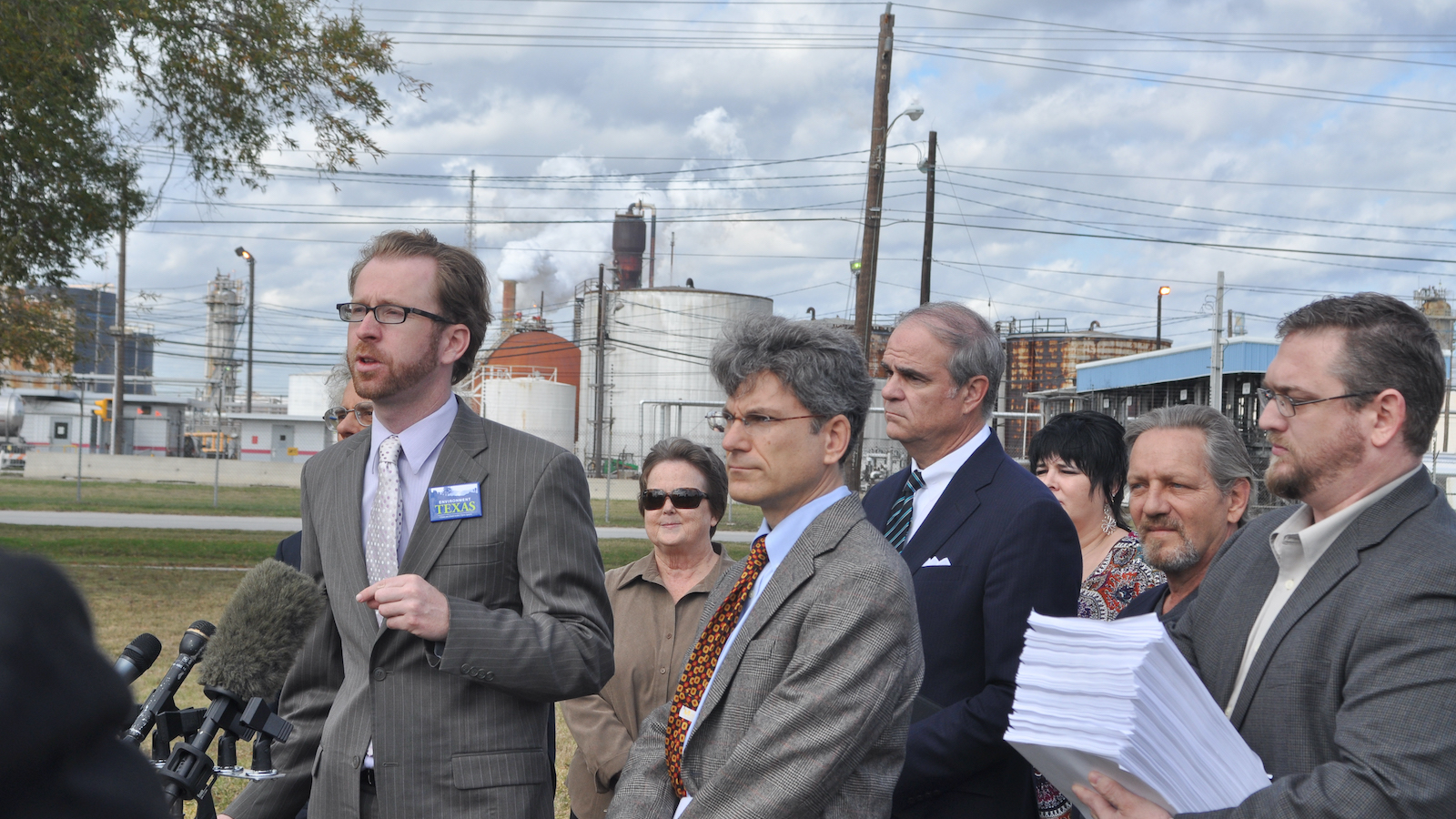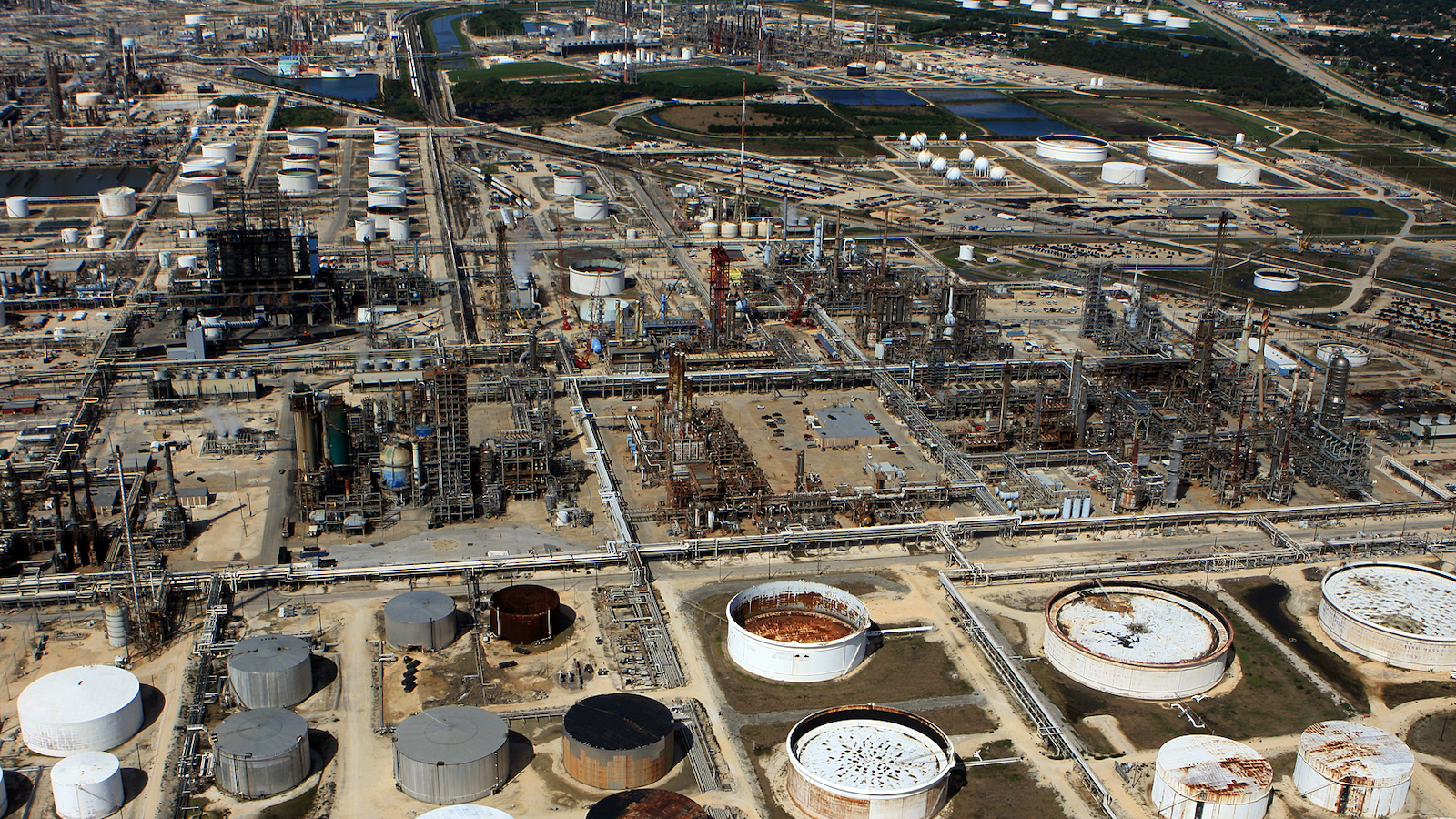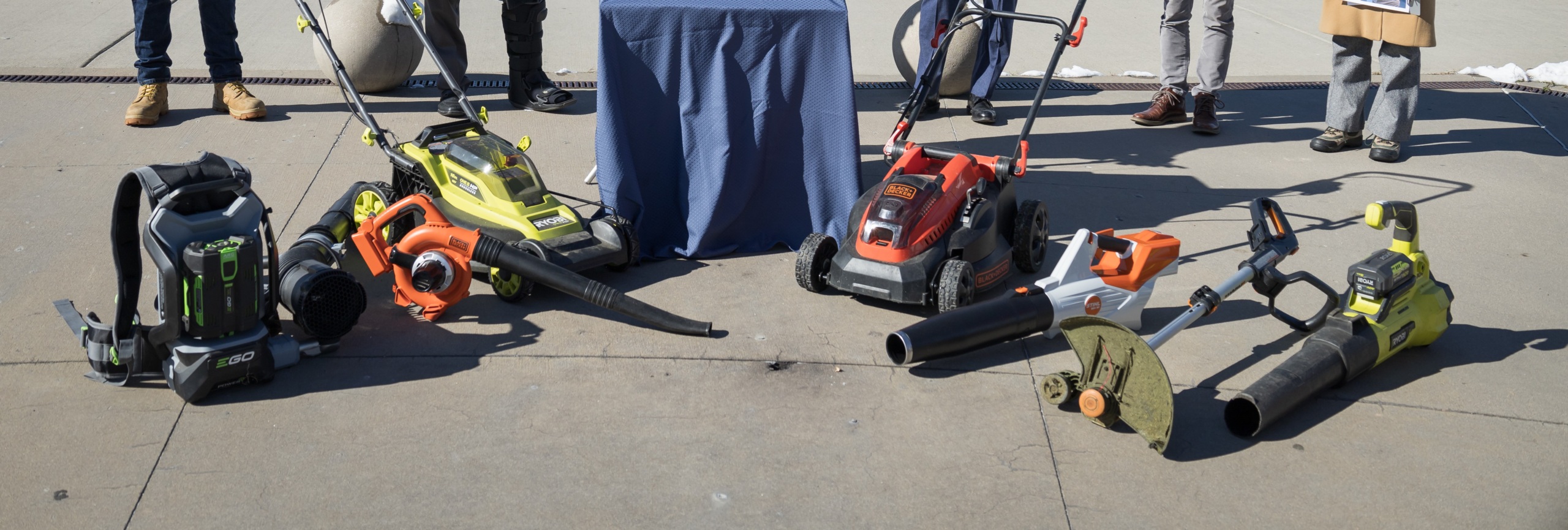The latest on our clean air lawsuit against ExxonMobil
On March 2, a federal judge issued a record-setting penalty against ExxonMobil. The amount? $14.25 million, or the largest civil penalty ever imposed in a citizen-initiated Clean Air Act suit.

On March 2, a federal judge in Houston once again issued a record-setting penalty against ExxonMobil — the amount this time was $14.25 million, the largest civil penalty ever imposed in a citizen-initiated Clean Air Act suit.
We originally took ExxonMobil to court back in 2010 for their ongoing violations of the Clean Air Act. After a decade-long legal battle, this ruling marks the second failed appeal attempt from the company.
Why Exxon’s pollution in Texas matters
About 25 miles east of Houston, you’ll find Baytown, Texas, home to two ExxonMobil petrochemical plants and one ExxonMobil oil refinery — the second largest refinery in the country.
While these plants have operated for decades, in recent years they broke the law — a lot. Between October 2005 and September 2013, ExxonMobil’s Baytown facilities were responsible for 16,386 days of violation (instances in which the company violated mandates) of the federal Clean Air Act, which means the company bypassed federal standards meant to curb toxic pollution.
During this time, the facility released more than 10 million pounds of dangerous contaminants into the air, including respiratory irritants like sulfur dioxide and ozone-forming chemicals, and carcinogens such as benzene and butadiene.
The Clean Air Act provides critical health protections, imposing standards on polluting industries that are necessary for maintaining our environment and public health. Without these protections, companies can freely prioritize their profits over people who have to live with the long-term health repercussions associated with dangerous air pollution.
The environment suffers, too — when oil and gas companies bypass the Clean Air Act, they release pollutants that harm our climate and other elements of the natural world.
We saw Exxon routinely ignoring these critical pollution standards, and we understood that this carelessness put our lives, ecosystems and habitats in danger. In 2010, we filed suit against ExxonMobil.

Environment Texas State Director Luke Metzger outside of an ExxonMobil plant in 2010. Credit: Photo Denbow
By 2014, we finally got our day in court: a federal trial of the case. At this trial, Environment Texas and Sierra Club members testified to share their experience of living with the hazards and hardships that ExxonMobil’s violations imposed on them.
Throughout this decade-long legal conflict, we faced resistance. Initially, the judge overseeing the case ruled against us. We appealed his decision to the 5th Circuit Court of Appeals. In 2016, a three-judge appellate panel ruled in our favor and remanded the case back to the trial court to correct the many errors made in the initial decision.
Seven years after we first filed the case, the trial judge handed down a new decision. It was a historic victory: ExxonMobil was ordered to pay a $19.95 million penalty for its pollution — the largest civil penalty ever imposed in a citizen-initiated Clean Air Act suit.
ExxonMobil has been battling this ruling ever since, appealing the case back again to the 5th Circuit in 2017.
But now, in March 2021, the company has been dealt another stinging setback.
After 10 years of litigation replete with setbacks, appeals, reversals, and wins, both the federal appeals court in New Orleans and the trial judge back in Houston have ruled in our favor once again, this time rejecting most — but not all — of the arguments Exxon raised in its appeal of the $19.95 million penalty. The courts have reaffirmed ExxonMobil’s liability for repeatedly violating federal law, and issued a scaled-down but still record-setting $14 million penalty for 3,651 days of “traceable” violations (ones that can be connected to specific injuries).

ExxonMobil plant in Baytown. Photo credit: Gulf Restoration Network via Flickr
The big picture
The Clean Air Act mandates that companies publicly self-report their emissions, an extremely important requirement that enabled us to catch ExxonMobil red-handed — even when state and federal regulators were going to let them off the hook.
When companies break federal environmental laws, and the government fails to enforce the standards those laws establish to defend our environment and our public health, citizens can take action through a citizen enforcement suit. The Clean Air Act specifically authorizes and empowers individuals and non-profit groups to step in when the government won’t take violators to court.
The emission limits defied and disregarded by ExxonMobil were standards set to protect the public. When one company ignores critical legislation meant to prevent pollution — 10 million pounds of illegal pollution in this case — how do we convince other polluters to stop contaminating our air? How do we stop ExxonMobil from polluting and endangering its own Baytown employees along with the neighboring communities?
We take them to court.
In addition to our legal battle against ExxonMobil, our legal team at the National Environmental Law Center has taken more than 100 successful enforcement actions against polluters across the country, from Maine to Florida, and from Pennsylvania to California. We’ve empowered citizens, lifting their voices up as we work to lower the amount of toxic pollution released into our environment.
For us, the penalty is more than a number — it’s affirmation that there is power behind the citizen enforcement provision in the Clean Air Act. We can — and, to the best of our ability, will — uphold environmental and health standards and hold rule-breakers accountable.
Top photo credit: Roy Luck via Flickr, CC BY 2.0
Topics
Authors
Mary Katherine Moore
Find Out More

Why Alaska’s NPR-A, site of the Willow Project, deserves protection

Bank of America said it would stop financing drilling in the Arctic Refuge. Now it’s backtracking.

Methane emissions are accelerating climate change — here’s what we can do about it


